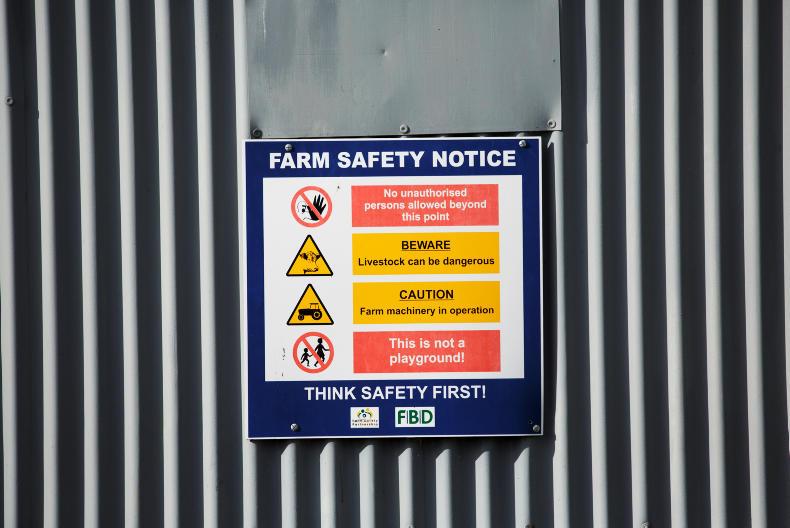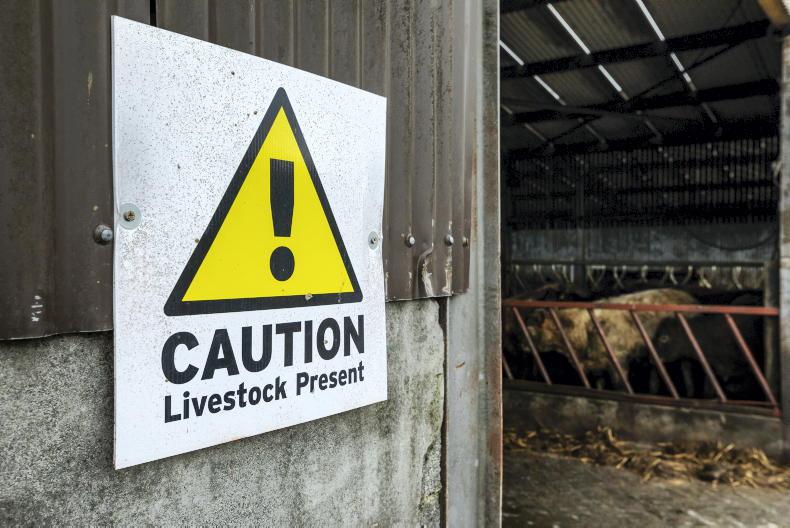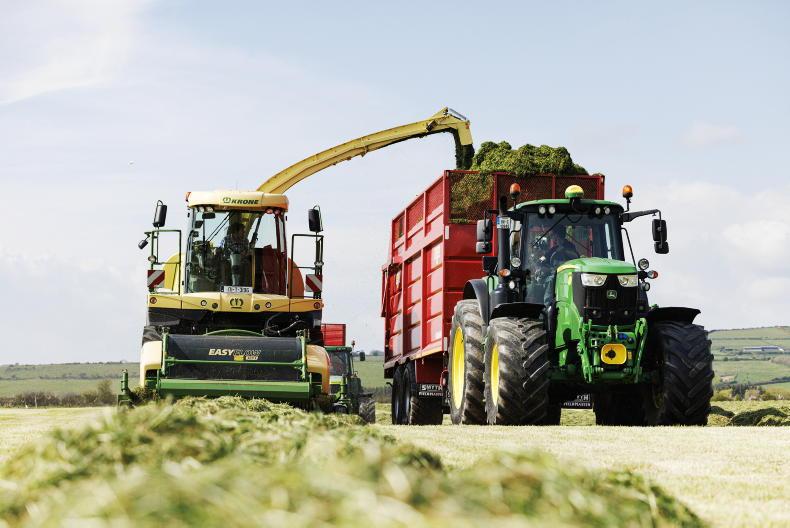There is no silver bullet to solve the farm safety challenges facing agriculture, senior inspector for agriculture safety with the Health and Safety Authority (HSA) Pat Griffin has warned.
Speaking during an Agricultural Science Association (ASA) webinar on farm safety, Pat Griffin highlighted that farmers were seven times more likely to die in a workplace accident than any other industry.
Jason van der Velde, an emergency responder who has attended farm accidents, said the figure was “unacceptable high” and at some point the industry needed to say “enough is enough”.
Dangers
During his presentation Griffin highlighted some of the farm deaths the HSA has had to investigate with victims ranged from just two years old up to 83 years old. In most cases, machinery, particularly tractors, were involved.
On non-fatal accidents, van der Velde said official figures were “just the tip of the iceberg” and were nowhere close to reflecting the reality on farms. In the majority of cases those injured were the farmer themselves or family members over the age of 65 or under the age of 17.
He also said machinery was the main cause of accidents on Irish farms with the cases he sees shooting up in the months of June, July and August.
Change
He believed further enforcement was not the answer as too much of the stick approach was counterproductive. He said engineering could provide solution but it needed to be cost effective or there would be no uptake.
For van Der Velde, education was the only way to effect meaningful change on farms. He said agriculture should take guidance from the petrochemical or airline industries where there is a “no blame culture” that encourages accidents to be reported and lessons learned from them.
Griffin pinpointed a number of areas where change was needed.
Firstly, he said there was a problem at EU level with three-quarters of farm accidents not counted registered or investigated. He said if there was going to be a change then there needed to be a change in policy.
Culture
He stressed that at farm level there needed to be a change in culture. Griffin said farmers should not wait for an inspector to turn up to tell them what was wrong, instead saying farmers needed to be proactive.
One area he picked out was the presence of children in farmyards while work was ongoing. He said people were willing “to turn a blind eye” to the dangers posed.
Lastly, he said there needed to be greater training for farmers suggesting that a ‘safe pass’ for farms may be necessary. He also suggested that farm payments could be linked to farm safety.
However, Griffin stressed it should not be a penalty or deduction system but rather a bonus system with farmers who undertook training or maintained machines receiving additional payments.
Read more
Farm safety must always be to the fore
Farmers need to ‘cop-on’ and approach work professionally
There is no silver bullet to solve the farm safety challenges facing agriculture, senior inspector for agriculture safety with the Health and Safety Authority (HSA) Pat Griffin has warned.
Speaking during an Agricultural Science Association (ASA) webinar on farm safety, Pat Griffin highlighted that farmers were seven times more likely to die in a workplace accident than any other industry.
Jason van der Velde, an emergency responder who has attended farm accidents, said the figure was “unacceptable high” and at some point the industry needed to say “enough is enough”.
Dangers
During his presentation Griffin highlighted some of the farm deaths the HSA has had to investigate with victims ranged from just two years old up to 83 years old. In most cases, machinery, particularly tractors, were involved.
On non-fatal accidents, van der Velde said official figures were “just the tip of the iceberg” and were nowhere close to reflecting the reality on farms. In the majority of cases those injured were the farmer themselves or family members over the age of 65 or under the age of 17.
He also said machinery was the main cause of accidents on Irish farms with the cases he sees shooting up in the months of June, July and August.
Change
He believed further enforcement was not the answer as too much of the stick approach was counterproductive. He said engineering could provide solution but it needed to be cost effective or there would be no uptake.
For van Der Velde, education was the only way to effect meaningful change on farms. He said agriculture should take guidance from the petrochemical or airline industries where there is a “no blame culture” that encourages accidents to be reported and lessons learned from them.
Griffin pinpointed a number of areas where change was needed.
Firstly, he said there was a problem at EU level with three-quarters of farm accidents not counted registered or investigated. He said if there was going to be a change then there needed to be a change in policy.
Culture
He stressed that at farm level there needed to be a change in culture. Griffin said farmers should not wait for an inspector to turn up to tell them what was wrong, instead saying farmers needed to be proactive.
One area he picked out was the presence of children in farmyards while work was ongoing. He said people were willing “to turn a blind eye” to the dangers posed.
Lastly, he said there needed to be greater training for farmers suggesting that a ‘safe pass’ for farms may be necessary. He also suggested that farm payments could be linked to farm safety.
However, Griffin stressed it should not be a penalty or deduction system but rather a bonus system with farmers who undertook training or maintained machines receiving additional payments.
Read more
Farm safety must always be to the fore
Farmers need to ‘cop-on’ and approach work professionally









SHARING OPTIONS